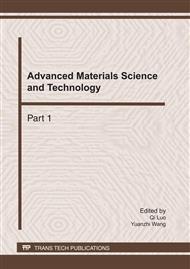p.299
p.305
p.310
p.316
p.320
p.325
p.330
p.337
p.343
Simulation Research on Electric Dominant Strategy of Plug-in Hybrid Electric Vehicle
Abstract:
As a promising technology that uses electricity to displace petroleum consumption in the vehicle fleet, plug-in hybrid electric vehicle’s performance is due to its control strategy. Traditional hybrid electric vehicle methods, such as charge balance strategy, could not fit it so much. An electric dominant strategy (EDS) is presented for plug-in hybrid electric vehicle. Two parameters, including battery SOC and vehicle velocity are chosen as threshold to coordinate the operation of fuel converter (engine) and energy storage system (batteries). Finally, compared to Charge Balance Strategy (CBS), simulation experiments are carried on electric vehicle platform ADVISOR software. Simulation results show the validity of EDS.
Info:
Periodical:
Pages:
320-324
Citation:
Online since:
January 2011
Authors:
Price:
Сopyright:
© 2011 Trans Tech Publications Ltd. All Rights Reserved
Share:
Citation:


